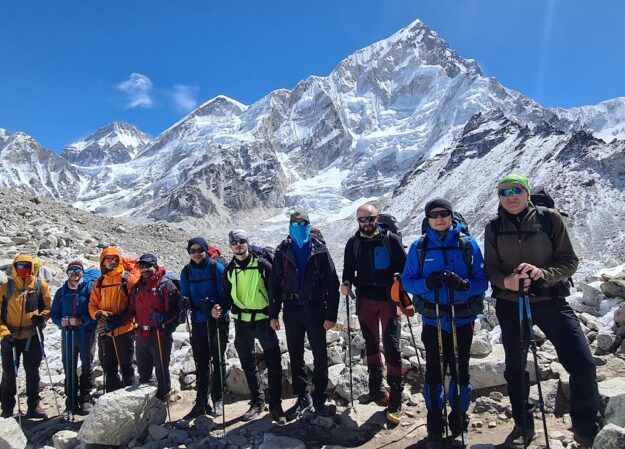Trekking
Graceful Adventure Travel offers complete Nepal trekking packages that are designed to provide tourists with a well-organized and hassle-free trekking experience. These packages often include various services and facilities to make the experience of trekking in Nepal smooth and enjoyable. Nepal has the world’s highest mountains, including Mount Everest, Annapurna, and Kanchenjunga. Trekking in Nepal provides an opportunity to witness these stunning mountains up close and have a panoramic view of the snow-covered peaks.
Trekking in Nepal is well known all over the world for trekking destination. There is no other country in the world which has as many trekking trails as Nepal has, which owns the highest Himalayas in the world and an assortment of ethnic groups. The country is gifted with natural resources and wildlife, and eight of the ten tallest mountains are present here. Most of the trekking routes end on these magnificent mountains, holy and cultural places, and obviously heavenly spots, which are popularly known as trekking routes.
Nepal trekking not only includes trekking along virgin foot trails alongside or in proximity to high, magnificent Himalayan routes but also learning different cultures, their living style, and natural diversifications. Trekkers trek as they please, learning about rural societies, crossing fast rivers through suspension bridges, bathing in hot spring rivers, and learning about settlements on a daily basis. Graceful Adventure Travel is prepared to guide you to have your trekking adventure as one of the best decision-making experiences you have ever made, and the achievement will be worth far more than what you expect.
Nepal Trekking Package offer to trekkers a classic and unforgettable experience. Nepal is a paradise for trekkers due to its diverse landscapes, stunning mountains, and cultural richness. Nepal is renowned for its stunning landscapes and provides various trekking packages to trek through different routes at different levels of difficulty. While trekking in Nepal, trekkers not only have a close glimpse of snow-capped mountains and picturesque green valleys but are also exposed to the culture of the people living in different regions of Nepal.
Trekking in Nepal is all about following virgin foot trails around or along with beautiful, high Himalayan trails and observing mixed cultures, their lifestyle, and natural variations. Walking moderately, you will enjoy rural communities, cross fast rivers on suspension bridges, and bathe in hot spring rivers and understand visiting one or two villages a day. We are dedicated to serving you and making you realize that trekking in Nepal is one of the most important things you’ve ever done, with the accomplishment far exceeding your expectations.
There is a wide range of trekking in Nepal, ranging from easy, moderate, and strenuous to challenging. Trekking in Nepal provide a wide range of options for various fitness levels and inclinations. Whether you’re a first-time hiker or an experienced trekker looking for a new challenge, Nepal has something for everyone. It is often referred to as a virtual heaven for trekkers worldwide, offering a diverse range of trekking options that cater to different interests, budgets, and timeframes.
For beginners or those looking for a more relaxed pace, easy trekking packages in Nepal offer a perfect opportunity. These treks suit first-time trekkers, families, or those seeking an easier trekking experience. Simple treks in Nepal offer a combination of natural scenery, culture, and well-developed trails with established teahouses that are easy to manage. Well-known simple treks are Ghorepani Poonhill Trek, Dhampus Australian Camp Trek, and Everest View Trek, Mohore danda trek among many others. These treks offer a blend of scenic and cultural experiences without requiring much physical exertion.
For hikers who are comfortable with moderate levels of difficulty and have average fitness, packages for moderate treks are available. These hikes offer a combination of tough mountain views and interaction with culture and are suitable for individuals with average fitness. Among the most popular moderate treks are the Annapurna Base Camp Trek, Langtang Valley Trek, and Gosaikunda Helambu Trek and many more. These treks include some uphill and downhill sections but are generally comfortable for most trekkers with a moderate level of fitness.
For those seeking something more physically demanding, strenuous trekking packages in Nepal are an excellent choice. These treks require a good amount of fitness because they entail longer walking days, higher altitudes, and rugged terrain. Among the most sought-after challenging treks are the Everest Base Camp Trek, Manaslu Circuit Trek, and Annapurna Circuit Trek. They consist of steep inclines and declines, and extensive exposure to high altitude, so they require good physical endurance and mental resilience from the trekkers.
For experienced trekkers looking for the ultimate challenge, challenging trekking packages in Nepal are available. These treks are for physically capable individuals with previous high-altitude trekking experience and who are prepared to cope with the difficulties of remote and rugged landscapes. Challenging treks in Nepal include the Dhaulagiri circuit trek, Upper Dolpo Trek, Great Himalayan Trail, and Makalu Base Camp Trek, among others. These treks are characterized by prolonged periods, very high altitudes, and grueling uphill and downhill slopes. One needs to have top-class physical conditioning, mental strength, and acclimatization skills to handle the high-altitude terrain presented on these routes.
Nepal has a variety of trekking routes, which are as beautiful as they are challenging. Always select a trek that suits your level of fitness, experience, and time at hand. It is also essential to trek in a responsible manner, respect the culture of the people, and follow proper safety guidelines to ensure a safe and enjoyable experience. The most popular and highly recommended treks in Nepal include Everest Base Camp Trek, Annapurna Circuit Trek, Langtang Valley Trek, Manaslu Circuit Trek, Upper Mustang Trek, and Kanchenjunga Trek.
Graceful Adventure Travel is dedicated to delivering quality and customized trekking tours in Nepal. Whether you prefer an easy, moderate, strenuous, or challenging trek, our trekking tours suit every fitness and experience level. Let us assist you to create lifelong memories exploring the culture and scenery of Nepal.

Trekking Trips
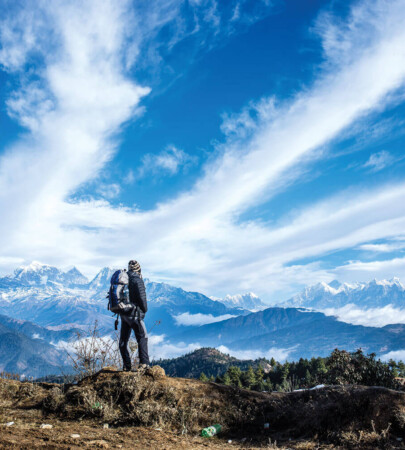
Pikey Peak Trek
7 Days
Trip DurationUS$ 1125
Per Person
Muldai View Point Trek
10 Days
Trip DurationUS$ 1200
Per Person
Mohare Danda Trek
10 Days
Trip DurationUS$ 1200
Per Person17 Days
Trip DurationUS$ 2270
Per Person
Nar Phu Valley with Annapurna Circuit Trek
19 Days
Trip DurationUS$ 2520
Per Person
Mardi Himal Trek
10 Days
Trip DurationUS$ 1150
Per Person
Upper Mustang Trek
18 Days
Trip Duration
Annapurna Circuit Trek
16 Days
Trip DurationUS$ 2250
Per Person
Kanchenjunga Base Camp Trek
19 Days
Trip DurationUS$ 2400
Per Person
Manaslu Circuit Trek
15 Days
Trip DurationUS$ 1800
Per Person
Langtang Valley Trek
10 Days
Trip DurationUS$ 1200
Per Person
Annapurna Base Camp Trek
12 Days
Trip DurationUS$ 1450
Per Person
Everest Base Camp Trek- 15 Days
15 Days
Trip DurationUS$ 1850
Per Person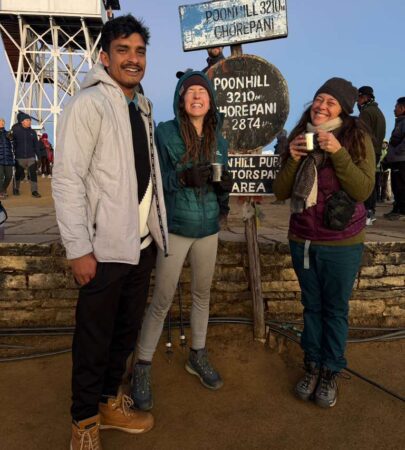
Ghorepani Poon Hill Trek
9 Days
Trip DurationUS$ 1150
Per Person
Khopra Danda Trek
14 Days
Trip DurationUS$ 1250
Per Person
Everest View Trek
10 Days
Trip DurationUS$ 1200
Per Person
Gokyo Lake Trek
14 Days
Trip DurationUS$ 2260
Per Person
Jiri to Everest Base Camp trek
22 Days
Trip DurationUS$ 2640
Per Person
Luxury Everest Trek
7 Days
Trip DurationUS$ 3860
Per Person
Ama Dablam Base Camp Trek
11 Days
Trip DurationUS$ 1750
Per Person
Tilicho Lake with Annapurna Circuit Trek
13 Days
Trip DurationUS$ 1560
Per Person12 Days
Trip DurationUS$ 1440
Per Person
Ghorepani & Annapurna Base Camp Trek
13 Days
Trip DurationUS$ 1560
Per Person
Rara lake trek
16 Days
Trip DurationUS$ 1920
Per Person
Panchase Trekking
08 Days
Trip DurationUS$ 960
Per Person
Dhampus Australian Camp Trekking
7 Days
Trip DurationUS$ 840
Per Person
Chisapani Nagarkot Trek
06 Days
Trip DurationUS$ 720
Per Person
Annapurna Royal Trek
09 Days
Trip DurationUS$ 1080
Per Person
Sikles Trek
9 Days
Trip DurationUS$ 1080
Per Person
Tamang Heritage Trek
09 Days
Trip DurationUS$ 1080
Per Person
Gosaikunda Helambu Trek
10 Days
Trip DurationUS$ 1200
Per Person
Ganja La Pass Trek
15 Days
Trip DurationUS$ 2250
Per Person
Ganesh Himal Base Camp with Rublivalley Trek
19 Days
Trip DurationUS$ 2280
Per Person
PANCH POKHARI TREK
08 Days
Trip DurationUS$ 860
Per Person
Makalu Base Camp Trek
17 Days
Trip DurationUS$ 2040
Per Person
Dhaulagiri Circuit Trek
20 Days
Trip DurationUS$ 2400
Per Person
Arun Valley Trek
13 Days
Trip DurationUS$ 1560
Per Person
Teri la pass Trek
24 Days
Trip DurationUS$ 2880
Per Person
Shey Phoksundo Lake Trek
13 Days
Trip DurationUS$ 1440
Per Person
Lower Dolpo Trek

Upper Dolpo Trek

Tsum Valley with Manaslu Circuit Trek
23 Days
Trip DurationUS$ 2760
Per Person12 Days
Trip DurationUS$ 3840
Per Person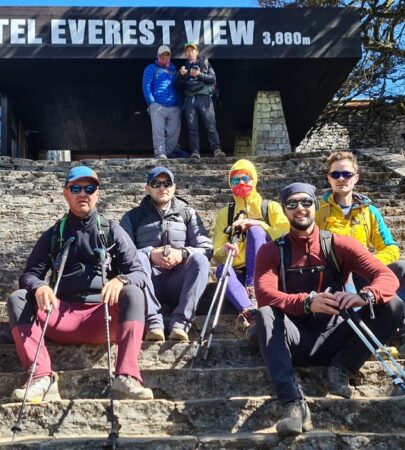
Everest Short Trek
7 Days
Trip DurationUS$ 1850
Per Person
Tsum Valley Trek
13 Days
Trip DurationUS$ 1560
Per Person
Seven Passes Annapurna Trek
23 Days
Trip DurationUS$ 2760
Per Person
Three Passes Annapurna Trek
23 Days
Trip DurationUS$ 2760
Per Person
Annapurna North Base Camp Trek
12 Days
Trip DurationUS$ 1440
Per Person
Ghale Gaun Homestay Tour
06 Days
Trip Duration
Lwang Homestay Tour/Trek
06 Days
Trip Duration
Syangja Sirubari Homestay Tour & Trek
6 Days
Trip Duration
Tamang Heritage and Langtang Valley trek
14 Days
Trip DurationWhy Trekking with Graceful Adventure?
Local Expertise with Authentic Insights
Graceful Adventure Travels is locally based in Nepal, offering deep knowledge of the terrain, culture, and seasonal conditions. Their insider understanding ensures a more authentic and immersive trekking experience.
Personalized and Flexible Itineraries
They customize treks based on your pace, interests, and travel goals, unlike rigid, pre-set packages. This flexibility allows for a more relaxed, meaningful journey tailored to your needs.
Professional and Caring Guides
Their certified guides are experienced, safety-conscious, and culturally informed, enhancing both your security and understanding of the region. The company also treats guides and porters ethically, ensuring responsible travel.
Commitment to Responsible Tourism
Graceful Adventure Travels promotes eco-friendly trekking and supports local communities through fair practices and sustainable tourism. By choosing them, you're helping preserve Nepal’s environment and culture.
Short Information on Trekking in Nepal
Best Season for Trekking in Nepal
Nepal is a geographically varied country with an immense range of trekking locations and therefore a year-round destination for tourists. However, based on the place you will be going to and the type of experience you are looking for, the best time to go trekking in Nepal will also differ considerably.
Autumn (September to November) and spring (March to May) are the two seasons that are most widely utilized and usually considered to be the best. During these months, the weather is fairly consistent, skies are clear, and mountain views are great. Autumn, in particular, is favored by individuals because of the crisp air, clear visibility, and festive atmosphere because major Nepali festivals like Dashain and Tihar take place during this period. Spring, on the other hand, is supplemented by the rising temperatures and blooming biodiversity of rhododendrons, especially in the Annapurna and Everest regions.
However, trekking in Nepal is not limited to just these two seasons. Certain regions possess unusual seasonal advantages different from the nation as a whole. Upper Mustang and Dolpo lie in the rain shadow of the Himalayas and are best visited during monsoon (June-August) when trails elsewhere become wet and slippery. These are culturally rich remote regions, and treks are organized mostly around local festivals like Tiji in Mustang or Phoksundo Festival in Dolpo, making the trekking experience culturally richer. For lower altitude treks below 3,000 meters like in regions like the Kathmandu Valley, Chisapani-Nagarkot, or Ghandruk, the trails remain accessible almost throughout the year and are quite and nice even in winter.
To have an untroubled and secure journey, using a reliable Nepal trekking operator is crucial. The agency actually has an enormous influence on the planning and quality of your trek. Graceful Adventure Travel is one such reputable Nepal travel agency that offers seasoned, customized trekking packages for the nation. Whether climbing Everest Base Camp in spring or trekking in Mustang in monsoon, Graceful Adventure Travel organizes the trek with experienced guides, good logistics, and deep local knowledge to ensure that you get the optimum of what is available for each season.
Finally, although spring and autumn are commonly accepted as the best times of the year for trekking in Nepal, the best time ultimately depends on your destination, altitude, and interest. With appropriate preparations and a good guide from a reliable trekking organizer in Nepal, such as Graceful Adventure Travel, you will enjoy a safe, scenic, and culturally rewarding trip regardless of the season.
Equipments:-

Most Popular Nepal Trekking
1. Everest Base Camp
Everest Base Camp trek Package is Nepal’s most storied trekking trail, offering breathtaking views of the world’s highest peak, Mt. Everest. The trekkers start from Lukla and move through Sherpa villages like Namche Bazaar and Tengboche, soaking themselves in rich Tibetan-Buddhist heritage. Along the route, you witness beautiful mountain ranges, ancient monasteries, and spectacular landscapes. The trail leads you into Sagarmatha National Park, a World Heritage site, renowned for its unique wildlife. Arriving at the base camp at an altitude of 5,364 meters is the fantasy of every trekker. It’s a test of high altitude that is spiritual as well as thrilling.
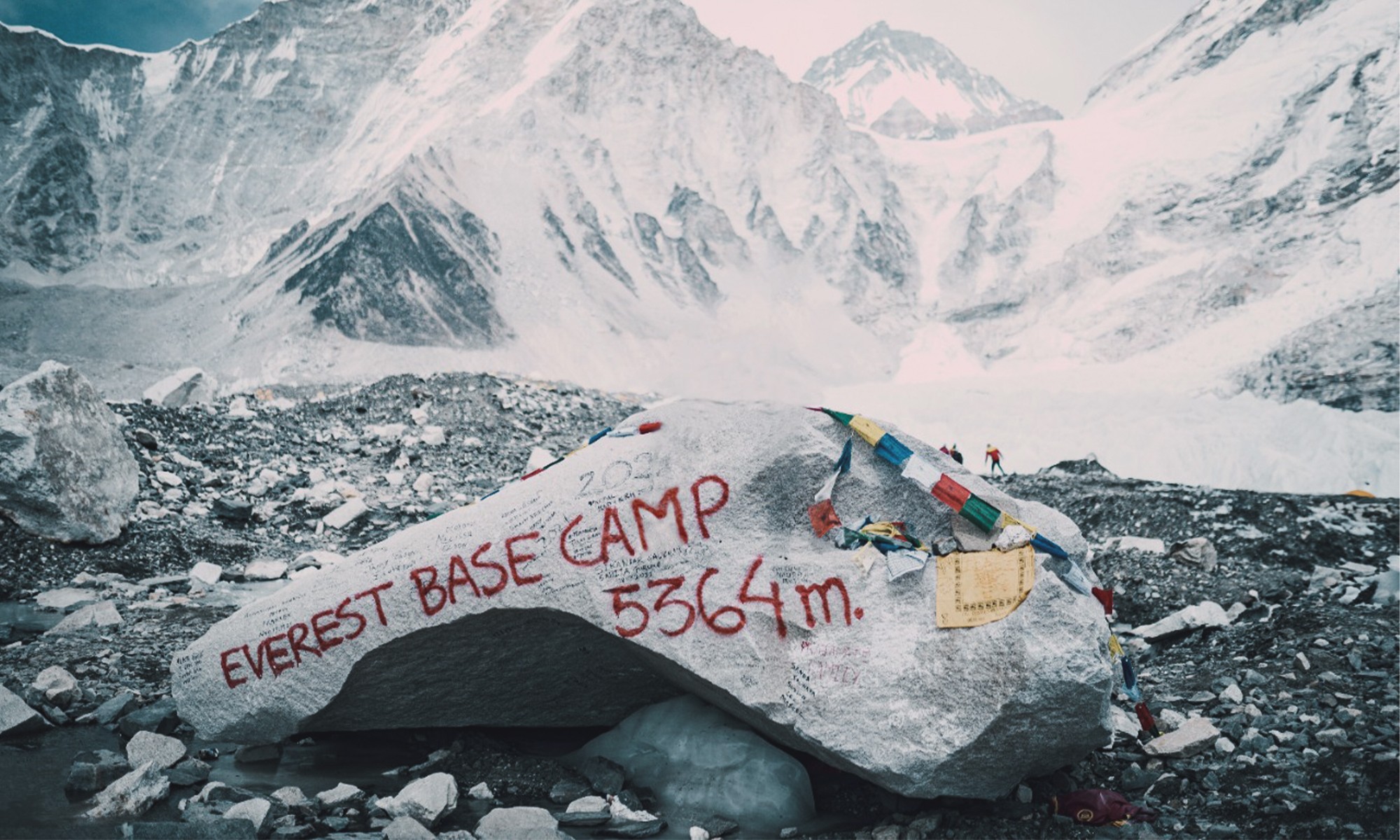
2. Annapurna Base Camp
Annapurna Base Camp trek Package leads you deep into the Annapurna Sanctuary, surrounded by mighty mountains such as Annapurna I, Machapuchare, and Hiunchuli. The trek starts at Pokhara and goes through dense forests, terraced lands, and villages of simple Gurung inhabitants. Along the way, trekkers are greeted with warm hospitality, diverse scenery, and changing climates. Reaching the base camp at 4,130 meters greets you with panoramic scenery of white mountains. It is one of the most popular and moderately challenging treks in Nepal. Ideal for beginners as well as experienced trekkers, this trek offers culture and nature in perfect balance.
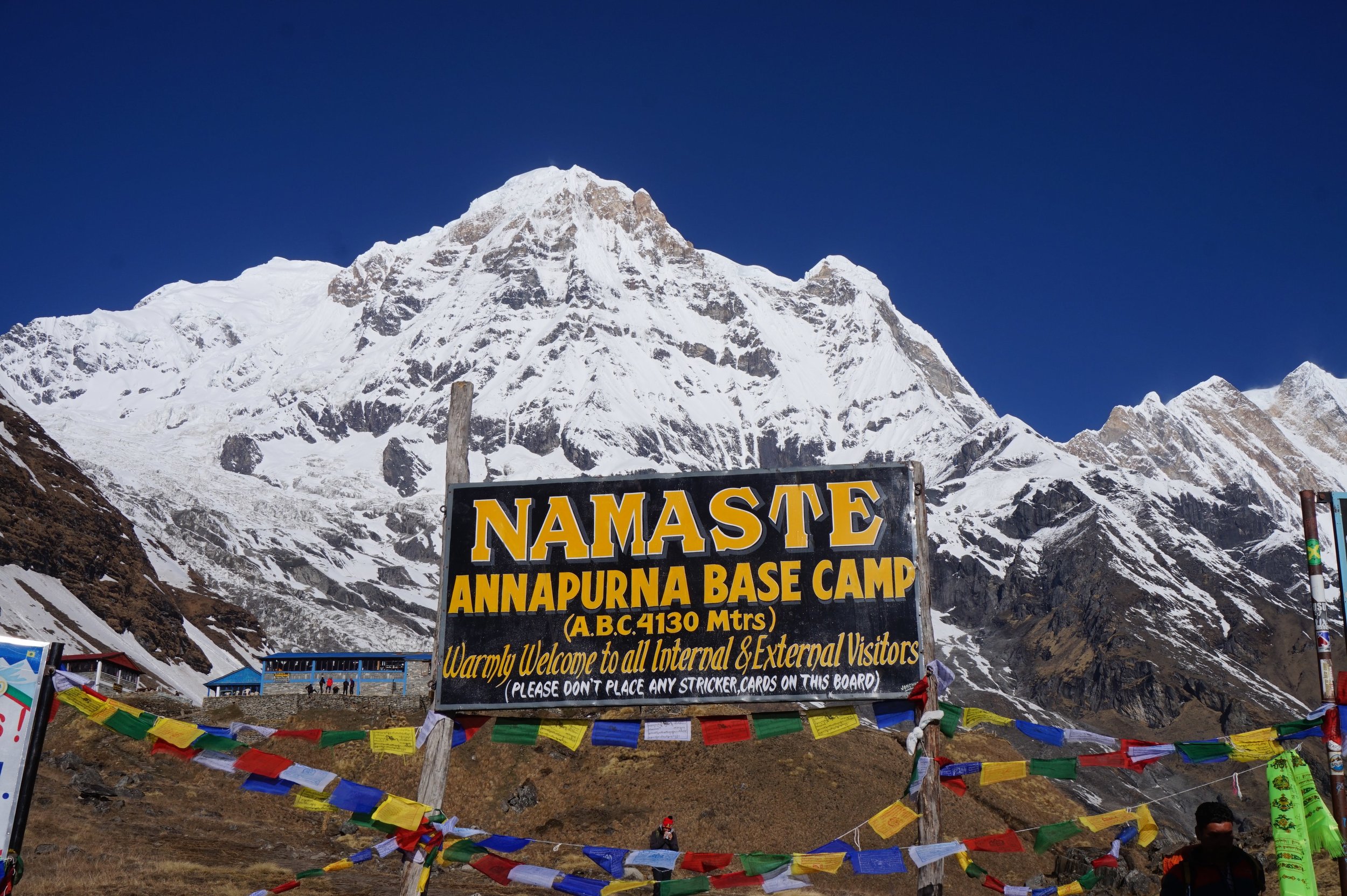
3. Langtang Valley
Langtang Valley is a lovely trekking zone close to Kathmandu but far less touristy than other routes. It’s renowned for its untouched beauty, white summits, yak grazing lands, and tiny Tamang villages. The trek begins from Syabrubesi and takes the Langtang River path to offer peaceful forests and alpine meadows. Post-earthquake in 2015, the area has been rebuilt and slowly tourism has started gaining pace again. The piece de résistance is Kyanjin Gompa, where trekkers can visit Buddhist monasteries and trek to Tserko Ri for a bird’s eye view. Langtang is ideal for anyone looking for a peaceful, culturally diverse Himalayan trek.
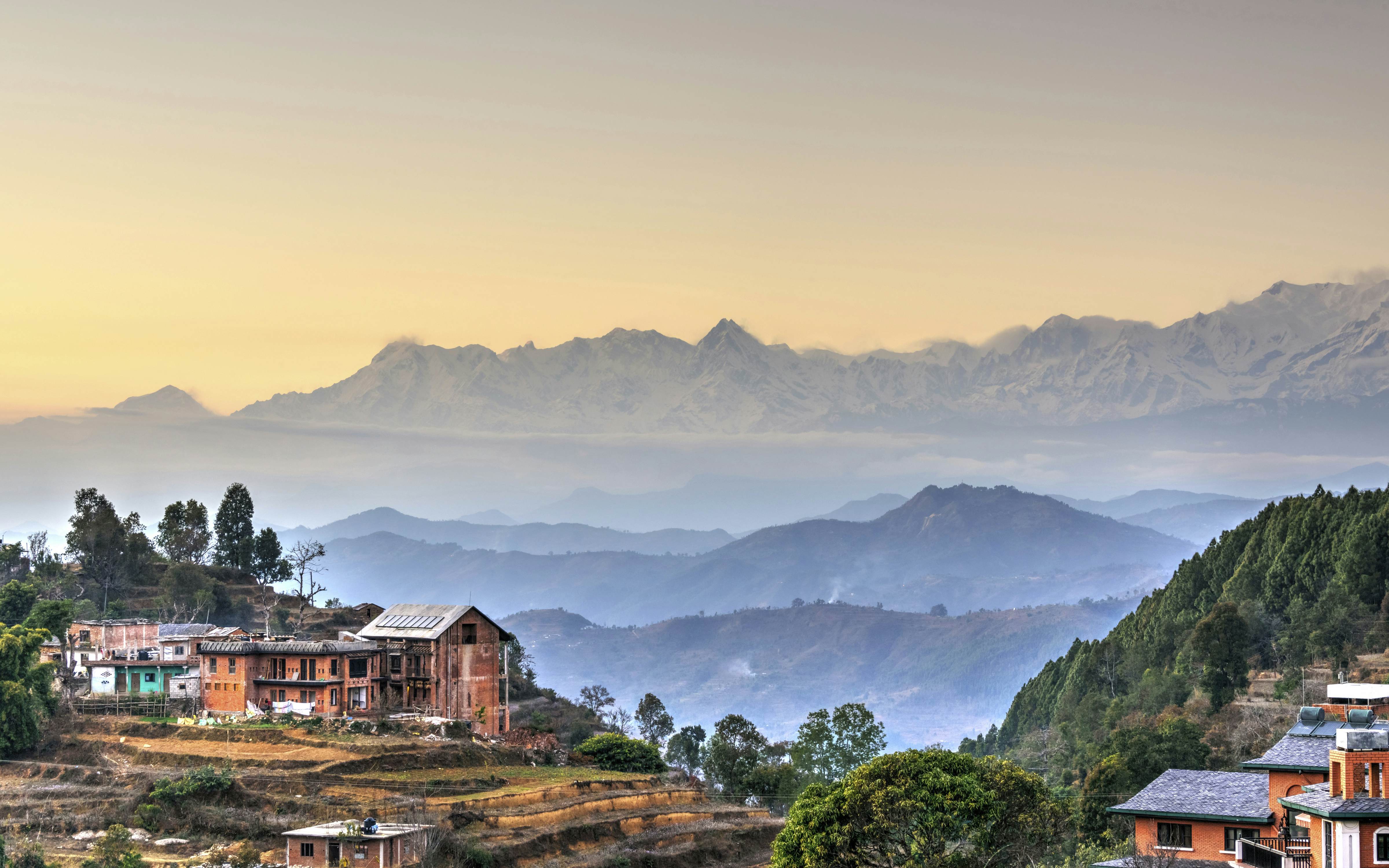
4. Manaslu Circuit Trek
Manaslu Circuit Trek Package encircles the world’s eighth-tallest mountain—Mt. Manaslu—and is renowned for its isolated trails and unadulterated cultural experiences. It’s a tough off-the-beaten-track experience, leading you through Gurung and Tibetan-style villages. The trek consists of crossing the breathtaking Larke Pass at an elevation of 5,106 meters, surrounded by stunning vistas of the Manaslu range. Few tourists pass through this area than that of Annapurna and Everest regions, giving solitude and nature exposure. Trekkers experience green forests, suspension bridges, and monasteries as they make their way. Restricted area permit needs to be produced, hence giving the trek its exclusivity and value.
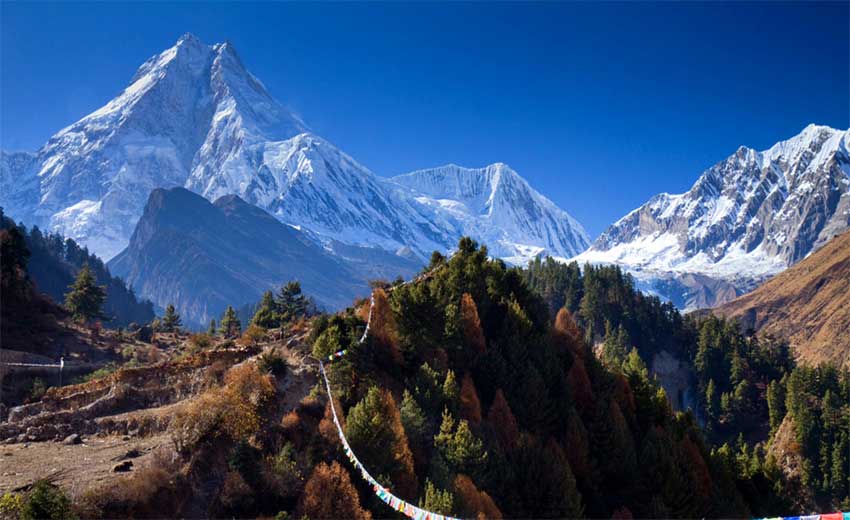
5. Mardi Himal Base Camp Trek
Mardi Himal is one of the newer but highly sought-after short treks in Nepal. It provides an intimate, non-crowded experience of the Annapurna region without the hordes of tourists. Starting from Pokhara, the trek climbs through rhododendron forests and high-altitude alpine meadows to the Mardi Himal Base Camp at a height of approximately 4,500 meters. The trek provides stunning close-up views of Machapuchare (Fishtail), Annapurna South, and Hiunchuli. This is a great trek for the time-tight traveler but still wanting a taste of high-altitude adventure. Simple teahouses and tranquil scenery make it ideal for a relaxing escape into nature.
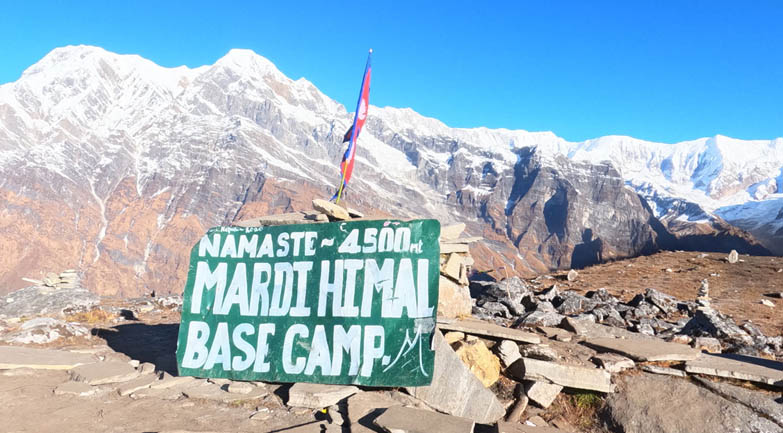
Less Crowded Trekking Routes in Nepal
1. Khopra Ridge Trek
The trek to Khopra Ridge is the best-kept secret of the Annapurna trekking with uninterrupted views of the mountains in peace. The trek starts at about Nayapul and branches off from the crowded Ghorepani trail, traversing forest, meadow, and remote village villages. The charm of this trail is the Khopra Danda, a spot that offers panoramic views of Dhaulagiri, Nilgiri, and Annapurna South. Trekkers may also trek to sacred Khayer Lake, and the trek then becomes spiritual. The trek is popular but remains unspoiled, peaceful surroundings. The trek is for a person who wishes to have a combination of culture, scenery, and solitude.
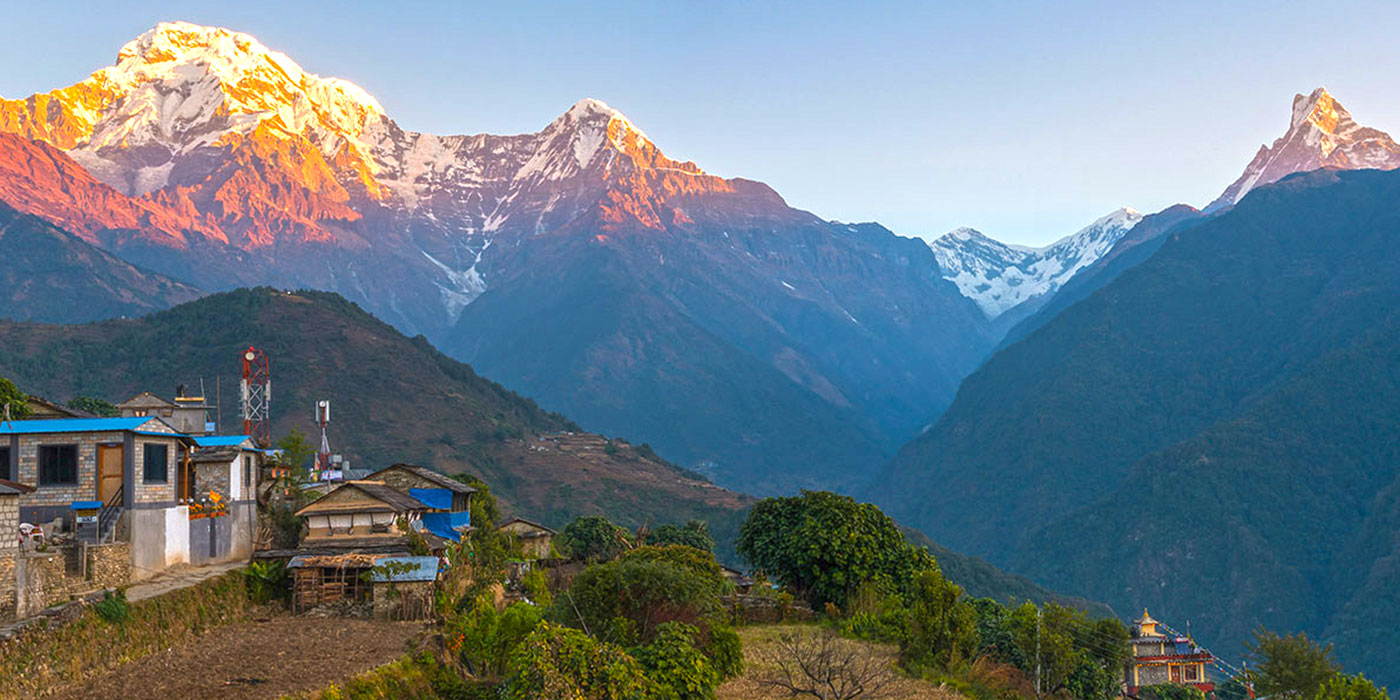
2. Narphu Valley Trek with Annapurna Circuit
Narphu Valley is off the beaten track, a dream world that exists in the shadow of the Annapurna massif, where Tibetan culture mixes with breathtaking Himalayan landscapes. The trekking is a diversion from the well-trodden Annapurna Circuit but becomes Nar and Phu’s isolated villages. You’re going to be trekking through alpine meadows, gorges, and ancient monasteries with not a trace of modern civilization. The area was once out-of-bounds to trekkers and requires a special permit. Crossing the high Kang La Pass (5,320 meters) returns you to the Annapurna trail. Trekking here is a unique cultural experience with breathtaking Himalayan views.
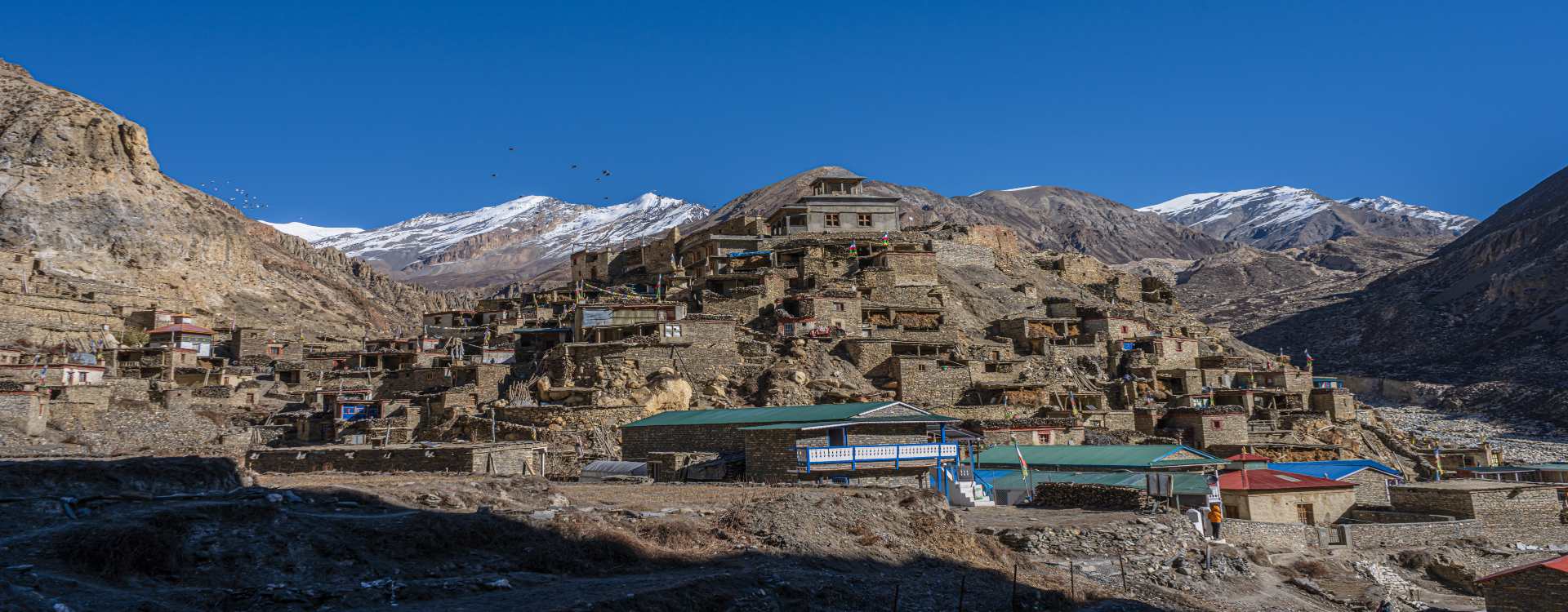
3. Mohare Danda Trek
Mohare Danda Trek is an eco-tourism village trek for trekkers seeking a peaceful alternative to Ghorepani Poon Hill. The trek starts at Galeshwor and goes through Magar villages, green forest and rolling ridges. Highlight is sunrise view from Mohare Danda with unobstructed view of Annapurna, Dhaulagiri, and Machapuchare. It is with homestays and ecotourism and you can actually give back to the villages. It is a high return trek, low altitude, remoteness and culture but without all the hypes of tour groups.
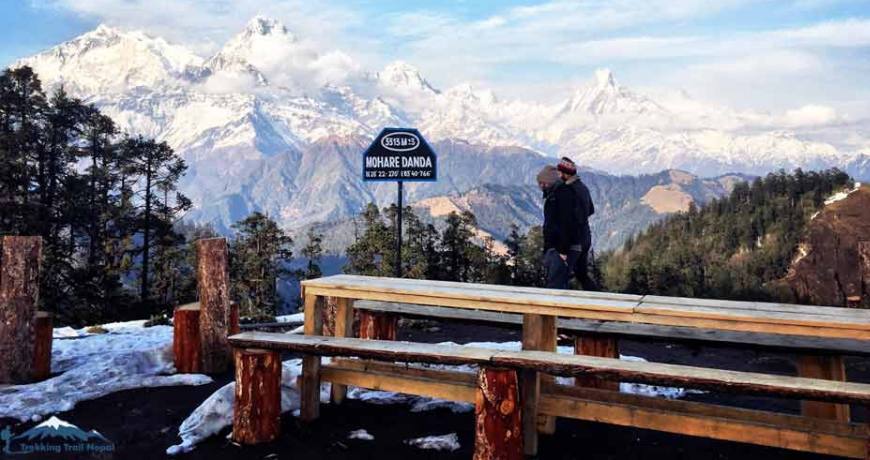
4. Kanchenjunga Base Camp
Kanchenjunga Base Camp trek takes you to the base of the third highest mountain in the world, to land that is remote, rugged, and ethnically diverse. It is in the eastern part of Nepal and there is a special permit so it is as new as the first one. The trek takes you through alpine meadows, glacial moraines, and dense forests. The trek goes through Limbu and Rai villages where there is a touch of Hindu and Buddhist culture that blend into one another. It is a hard and long trek, normally taking three weeks, and ideal for experienced travelers only. The mountains are stunning and the non-commercialization are the aspects which make it so unique.
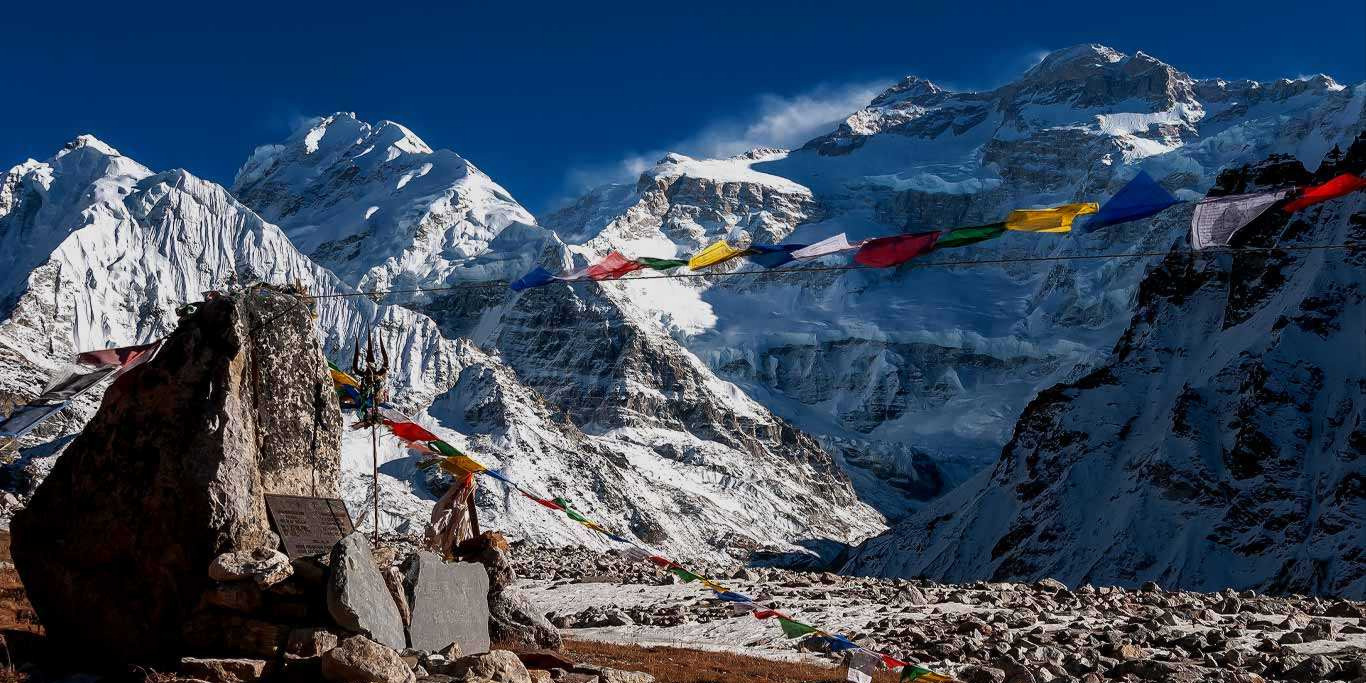
5. Pikey Peak Trek
Pikey Peak Trek is a short, scenic trek in lower Everest region, very well reputed for offering a good view of Himalayas during sunset and sunrise. They say that Everest would appear most beautiful to Sir Edmund Hillary from here. The trek is culturally significant, passing through Sherpa villages, monasteries, and rhododendron forests. On clear weather days from the summit of Pikey Peak (4,065m), Everest, Lhotse, Makalu, and even Kanchenjunga are visible. It is a more preferable option for tourists who would rather take in the views of the Everest region without the altitude and crowds of the EBC trek.
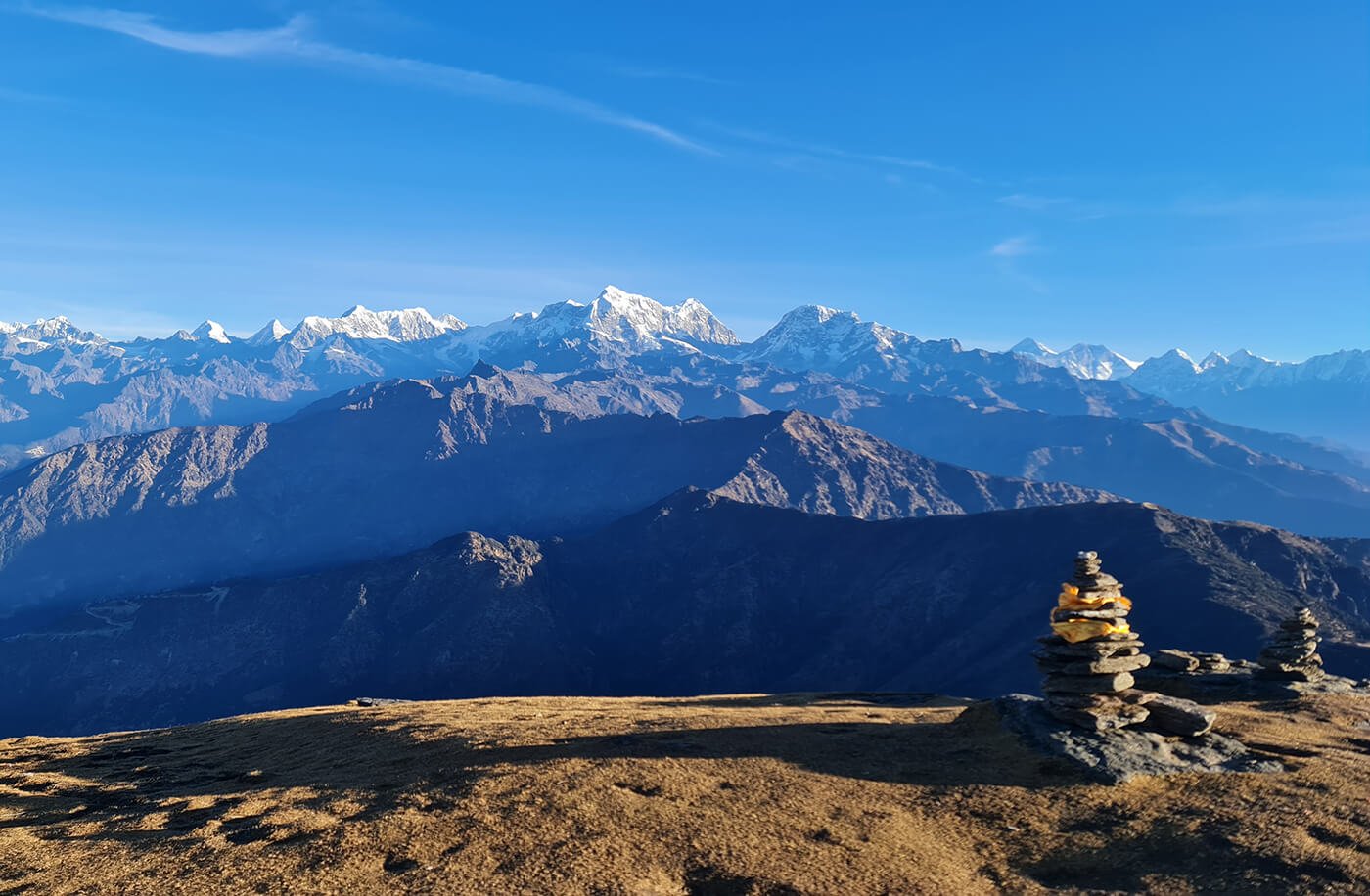
Types of Trekking Package in Nepal
Graceful Adventure provides the best trekking package in Nepal with a range from easy to difficult trek.
Easy Trek in Nepal
Easy treks in Nepal Package are perfect for newcomers or people with minimal trekking experience. Easy treks provide less difficult and more welcoming trekking experiences. Ghorepani Poonhill trek, Dhampus Australian, and the Lower Mustang trek are some of the easy trek. These treks offer a combination of nature, culture, and easy walking on well-developed teahouses. They are ideal for those who want to trek in Nepal but do not want to go on very strenuous trails or high elevations. Some of the easy trek are as fallows.
- Ghorepani Poonhill Trek
- Jomsom Muktinath Trek
- Panchase Trek
- Dhampus Australian Camp Trek
- Tamang Heritage Trek
- Muldai View Point Trek
- Mohore Danda Trek
- Sickless Trek
- Kapuchhe Lake Trek
- Annapurna royal Trek
- Everest view Trek
Moderate Treks in Nepal
Moderate treks Package are a bit more challenging than easy treks and require a good physical condition. Nepalese moderate treks are suitable for people with a good physical condition and who are willing to walk moderately difficult trails. Annapurna Base Camp Trek, Helambu Trek, and Langtang Gosaikunda Trek are some of the moderate treks. These treks offer a combination of scenic mountain views, cultural experience, and moderate physical activity. The treks involve some climbing and descending, but they are generally easy for average fitness trekkers.
- Annapurna Base camp Trek
- Langtang valley Trek
- Gokyo valley Trek
- Gosaikunda Hilambu Trek
- Mardi Himal Base Camp Trek
- Upper mustang Trek
- Shey Phokusundo Trek
- Ganesh himal base camp Trek
- jiri to Everest base camp Trek
- Khopra Ridge Trek
- Dhaulagiri Base Camp Trek
Difficult Trek in Nepal
Difficult Trek Package are demanding and require being physically fit, as they involve longer days, higher altitudes, and rugged terrain. Everest Base Camp Trek, Manaslu Circuit Trek, and Kanchenjunga Base Camp Trek constitute the hard treks. They require greater physical effort, as they involve lengthy walking days, steep ascents and descents, and longer durations of high altitude exposure. Trekkers can look forward to difficult trekking trail made up of rugged trails, moraines, and High Mountain passes.
- Everest Base Camp Trek
- Manaslu Circuit Trek
- Annapurna Circuit Trek
- Narphu Valley with Annapurna Circuit Trek
- Kanchenjunga Base Camp Trek
- Tsum valley Trek
- Everest High Passes Trek
- Lower Dolpo Trek
- Arun valley trek
- Rara Lake Trek
Challenging Treks in Nepal
Challenging Treks Package are specially intended for physically fit, veteran high-altitude trekkers with excellent physical condition and the ability to withstand the stresses of isolated and hard terrain. These treks demand extended time periods and acclimatization at high altitudes. Upper Dolpo Trek, Great himilayan Trial, Ganjala Pass and Makalu Base Camp Trek fall under challenging treks. Difficult treks typically involve demanding uphill and downhill trails, steep ascents and descents, and tough high passes. Such treks demand excellent physical condition, mental toughness, and the ability to withstand the inclement weather on the route.
- Upper Dolpo Trek
- Dolpo Muktinath Trek
- Ganjala Pass Trek
- Makalu Base camp Trek
- Kanchenjunga Circuit Trek
- Dhaulagiri Circuit Trek
Nepal offers many options to go trekking, and there is a beauty to every one of them along with their intensity level. It is always advisable to choose a trek based on your experience, physical condition, and available time. One must also trek responsibly, be respectful of the local culture, and adhere to necessary safety precautions for a fun and safe journey. A few of the most popular and highly regarded trekking trails of Nepal are Everest Base Camp Trek, Annapurna Circuit Trek, Langtang Valley Trek, Manaslu Circuit Trek, Upper Mustang Trek, and Kanchenjunga Trek. Some of the other notable trekking trails are Upper Dolpo, Makalu Base Camp, Rara Lake, and the Rolwaling Valley, among many others.
Food Services
Best Nepal Trekking Package takes one on a delicious trek in the mountains—not only on the ground, but on the plate as well. In treks like Annapurna or Langtang’s lower slopes, trekkers enjoy fresh dal bhat, crispy papad, and locally grown seasonal vegetables. Teahouses provide hearty meals like noodles, pancakes, soups, and the favorite momos—ideal to recharge one’s batteries after tiring hiking days. As one goes up, the diet is simpler yet filling, with sometimes hot thukpa (Tibetan noodle soup), yak butter and boiled potatoes, and sherpa stew.
On less remote treks such as Manaslu or Kanchenjunga, food is cooked on wood fires and ingredients locally sourced—millet bread, wild greens, and pickles of mountain greens. Some of these trails such as Mardi Himal or Khopra Ridge offer trekking options for diners among local families or in community-managed lodges where one can even assist in kneading dough or stirring a stew by a smoky flame. Whether sipping sweet tea while taking in a view of a mountain or sharing plain rice dishes lovingly prepared, the hiking experience is flavored with land, custom, and hospitality.
Accommodation Services
The Best Nepal Trekking Package strikes the most optimal balance between comfort and reality at every altitude. At beginning-point cities like Kathmandu and Pokhara, tourists start from cozy 4-star hotels with modern amenities—soft beds, hot showers, storage rooms, and breakfast buffets. When the trekking route opens, accommodation is gradually transferred to cozy teahouses run by mountain families with twin-sharing rooms with warm blankets and common dining halls.
In popular routes like Everest Base Camp or Annapurna, teahouses may feature solar-heated showers, electric plugs, and multi-lingual menus. On more isolated routes like Narphu or Kanchenjunga, the lodges are basic but offer the necessities—clean beds, hot food, and protection from the cold. Homestays in village communities like Bandipur or Langtang Valley provide greater immersion, where guests are treated as family.
With each stopover, whether ridgeline luxury lodges or a stone teahouse under the starry sky, the place of stay does more than sleep—it offers hospitality, cultural connection, and homecoming in the heart of the Himalayas.
Number of Traveler Guide Porter
| Number of Trekkers | Numbers of Guide | Numbers of Porter |
| For 1 or 2 trekkers | 1 guide | 1 porters |
| For 3, 4, or 5 trekkers | 1 guide | 2 porters |
| For 6 or 7 trekkers | 1 guide | 3 porters |
| For 8 trekkers | 1 guide & 1 assistant guide | 4 porters |
| 9 trekkers | 1 guide & 1 assistant guide | 4 porters |
| For 10 trekkers | 1 guide & 2 assistant guide | 5 porters |
Note: company will provide the Number of guide and porter depends of group size.
To summarize, Everest Base Camp Trek is an ideal way to experience the natural beauty of the Himalayas and the cultural richness of Nepal. Our friendly and experienced team will ensure that you have an unforgettable adventure.
Tour Operator
Graceful Adventure Travels Pvt. Ltd. is a highly reputable and renowned adventure travel company, registered and based in the beautiful country, Nepal. We specialise in offering exceptional tour & trekking packages to guests from all over the world, who seek to explore the awe-inspiring Himalayas.
At Graceful Adventure Travels, we are committed to excellence in all aspects of our work. Our primary goal is to ensure that our guests have a safe and unforgettable adventure, which is why we have earned a reputation for providing an exceptional level of service. Our team is composed of experienced and hardworking guides, assistant guides, and porters who are passionate about ensuring that our guests have an enjoyable and unforgettable experience. We take pride in offering a range of services and facilities that are designed to enhance the overall trekking experience, making it both fun and adventurous. We are dedicated to meeting the needs and expectations of our valued guests, and we go above and beyond to ensure that their journey is a success. From the moment they arrive in Nepal until the end of their trek, we spare no effort in providing personalized attention, exceptional service, and genuine care.
At Graceful Adventure Travels, we are committed to upholding the highest standards in the adventure travel industry. Our mission is to provide a safe, enjoyable, and unforgettable experience that creates memories that last a lifetime.
Booking process
First of all customer should contact with inquiry firm or booking firm or in whatsapp . The company presentative will contact the customer with in 24 hours. After that the company person guides the customer. The company person confirms the booking of the customer then the process is down below :
1. Package Selection:
Start by visiting our company’s website and browsing our trekking packages. You’ll find all the details, including the itinerary, inclusions, exclusions, and prices. If you have any questions, feel free to contact our customer support team, who will be happy to assist you.
2. Personal and Group Information:
Once you have decided to book the package, fill out the booking form on our website with the necessary personal and group information. Please ensure that all details are accurate, as any mistakes or omissions may lead to issues during the trek.
3. Confirmation:
Once you submit the booking form, our company representative will review your information and contact you within 24 hours to confirm your booking. We will send you our standard agreement, which outlines the terms and conditions of the booking. Please read the agreement carefully and ask us if you have any questions.
4. Advance Payment:
To confirm your booking, we require a 20% advance payment of the total cost of the package. You can make the payment through our secure online payment gateway, which accepts all major credit and debit cards. Alternatively, we can send you a payment link or provide you with our bank details for a direct bank transfer.
5. Booking Confirmation:
Once we receive your advance payment and signed agreement, we will confirm your booking and send you a receipt of payment. We will also provide you with a detailed itinerary, packing list, and other essential information to prepare you for the trek.
6. Pre-Trek Briefing:
Before the trek starts, we will conduct a pre-trek briefing, either in person or online, to go over the itinerary, safety protocols, and other relevant information. This briefing is essential to ensure that you have a safe and enjoyable trekking experience.
We hope that this updated booking process meets your requirements and makes it easier for your customers to book our trekking packages. If you have any further questions or suggestions, please let us know, and we’ll be happy to help.
Contact Details for Trekking Booking in Nepal
| Particular | Details |
| Booking office | Graceful Adventure Travel |
| Phone Number | +977-9851219412, 014700180/81 |
| Office Location | Amrit Marga Thamel Kathmandu Nepal |
| [email protected]/ [email protected] |
Frequently Asked Questions
Airport pick-up and drop, all trek permits, guide and porter services, trek accommodation (teahouses or lodges), meals on three-times-a-day basis during trekking, and transportation from trek to trek are included in the package. Accommodation at hotel in Pokhara or Kathmandu prior to and post-trekking is included in some packages.
No, all treks like Mardi Himal, Pikey Peak, or Ghorepani are fine for beginners. But some fitness is recommended. For high or long treks like Everest Base Camp or Manaslu Circuit, trekking or pre-training is recommended.
Accommodation during treks is mostly in teahouses—simple lodges with twin-share rooms, hot blankets, and shared showers. The minimalist approach of rooms with minimal electricity and showering according to the sun is common in the wilderness industry. We use 3–4 star hotel accommodation with all facilities in the urban cities like Kathmandu and Pokhara.
Yes! Vegetarian and vegetable food such as dal bhat, vegetable soup, noodles, and potatoes are readily available in all the trekking trails. We can also offer gluten-free or allergy-diet food if pre-informed. We recommend pre-notification of special diets to us before starting the trek.
The ideal times are spring (March–May) and autumn (September–November). These seasons offer clear skies, great mountain views, and comfortable temperatures. Winter treks are possible at lower altitudes, while monsoon season (June–August) brings rain and leeches, so fewer trekkers choose that period.
Yes, travel insurance is compulsory if there are treks over 3,000 meters. It should have coverage under the policy for emergency evacuation, high-altitude sickness, medical illness treatment, and trip cancellation. Take with you a photocopy of your insurance during the trek.
While independent trekking is available on some of the more touristy trails, a professional guide offers security, guidance, and sensitivity to culture. Your porter, too, carries your heavy rucksack (max 20 kg), so your trek will be less exhausting. Guide, as well as some permits, is required for some of the restricted areas, i.e., Manaslu.
Difficulty by route. Pikey Peak or Mohare Danda treks are easy to moderate, recommended for first-time trekkers. Annapurna Base Camp and Langtang Valley are moderate, Everest Base Camp and Manaslu Circuit are difficult due to altitude and distance. Our members help you decide on a route based on your health and duration.
The must-haves are hiking boots, insulating clothes, warm coat, gloves, hat, sunglasses, sun lotion, refillable water bottles, sleeping bag, medication, and hygiene pack. The complete list of what to pack will be provided on booking. The gear can also be rented or bought in Kathmandu or Pokhara.
Yes
In reality, especially on ascents of over 3,000 meters like Everest or Manaslu. We reduce risk by compliance with acclimatization regimes, promoting incremental gain of altitude, and utilization of experienced guides known to be familiar with symptoms to screen for. Proper hydration and abstinence from alcohol are also good tips. For more severe symptoms, we plan immediate descent or evacuation.
Quick Inquiry Form


